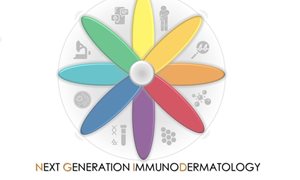18 May 2018
Interestingly, nobody had ever asked to which degree the polymeric carrier of a nanomedicine would accumulate in the brain assuming that the nanomedicine would be applied chronically and the carrier is slowly broken down.
Celine Bolwerk, Larissa Govers and Hanna Knol, under supervision of Roland Brock and Thom Oostendorp, theme Nanomedicine, answered this question in the context of their second year bachelor research project.
The results were recently published in ChemMedChem.
 Nanomedicines hold great promise in the development of new therapies also for disorders of the central nervous system.
Nanomedicines hold great promise in the development of new therapies also for disorders of the central nervous system.
Interestingly, nobody had ever asked to which degree the polymeric carrier of a nanomedicine would accumulate in the brain assuming that the nanomedicine would be applied chronically and the carrier is slowly broken down.
Celine Bolwerk, Larissa Govers and Hanna Knol, under supervision of Roland Brock and Thom Oostendorp, theme Nanomedicine, answered this question in the context of their second year bachelor research project.
The results were recently published in ChemMedChem.
Related news items

Camille Le Gall reports an efficient approach for delivery of poorly soluble tumor antigens to human cDC1s
20 April 2022 Camille Le Gall published about an efficient targeting of NY-ESO-1 tumor antigen to human cDC1s by lymphotactin results in cross-presentation and antigen-specific T cell expansion in the Journal of Immunotherapy of Cancer. go to page
Rubicon grants awarded to three RIMLS researchers
19 April 2022Three researchers have received Rubicon funding from NWO/ZonMw. This will enable Elke Muntjewerff, Laura de Vries and Laurens van de Wiel to do research at a foreign research institute for the next two years.
go to page
Large NWA ORC grant awarded for national skin research: Next Generation ImmunoDermatology
23 March 2022Research for better treatment methods for chronic skin diseases.
go to page
ERC Proof of Concept Grant for Martijn Verdoes
8 March 2022 Martijn Verdoes, group leader Chemical Immunology at the department of Tumor Immunology, has been awarded an ERC Proof of Concept (PoC) Grant. The ERC PoC Grants are designed to support ERC grantees with the commercial or societal application of the results of their funded research. go to page

